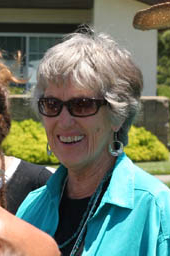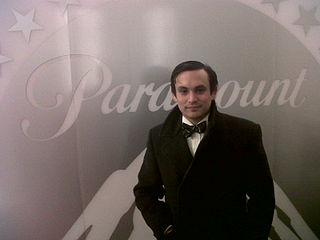A Quote by Salman Rushdie
Meaning is a shaky edifice we build out of scraps, dogmas, childhood injuries, newspaper articles, chance remarks, old fillms, small victories, people hated, people loved; perhaps it is because our sense of what is the case is constructed from such inadequate materials that we defend it so fiercely, even to death.
Related Quotes
The most effective way to close down the human mind and to manipulate its sense of self is to program into it some form of dogma. A dogma will always vehemently defend itself from other information and repel any alternative opinion which contradicts its narrow, solidified view. Dogmas become a person's sense of security and means of retaining power, and humanity tends to cling to both until its knuckles turn white. Dogmas take endless forms, and when you can persuade different people to hold opposing dogmas, the manipulation of conflict and control through "divide and rule" becomes easy.
As soon as you look at the world through an ideology you are finished. No reality fits an ideology. Life is beyond that. That is why people are always searching for a meaning to life. But life has no meaning; it cannot have meaning because meaning is a formula; meaning is something that makes sense to the mind. Every time you make sense out of reality, you bump into something that destroys the sense you made . Meaning is only found when you go beyond meaning.
However small we are, we should always fight for what we believe to be right. And I don’t mean fight with the power of our fists or the power of our swords…I mean the power of our brains and our thoughts and our dreams. And as small and quiet and unimportant as our fighting may look, perhaps we might all work together…and break out of the prisons of our own making. Perhaps we might be able to keep this fierce and beautiful world of ours as free for all of us as it seemed to be on that blue afternoon of my childhood.
A Lucky Child is an extraordinary story, simply and beautifully told. Heartbreaking and thrilling, it examines what it means to be human, in every good and awful sense. Perhaps most amazingly of all, Thomas Buergenthal remembers and renders the small mysteries and grand passions of childhood, even a childhood lived under the most horrific circumstances.
It will never be the case that people won't eat meat. I think it could conceivably be the case one day that people eat very small amounts of it. That it's a special thing, rather than reach for it because it's cheap or reach for it because it's convenient, that it becomes something festive or something celebratory, once a week, and that could actually be achieved on small farms if we really changed our habits.
Out of this darkness a new world can arise, not to be constructed by our minds so much as to emerge from our dreams. Even though we cannot see clearly how it's going to turn out, we are still called to let the future into our imagination. We will never be able to build what we have not first cherished in our hearts.
For how shall we fill people with blind faith in the correctness of a doctrine, if we ourselves spread uncertainty and doubt by constant changes in its outward structure? ...Here, too, we can learn by the example of the Catholic Church. Though its doctrinal edifice, and in part quite superfluously, comes into collision with exact science and research, it is none the less unwilling to sacrifice so much as one little syllable of its dogmas... it is only such dogmas which lend to the whole body the character of a faith.







































